★★½
“That old bag wanted to damp my Spirit Knife with Virgin Sword.”
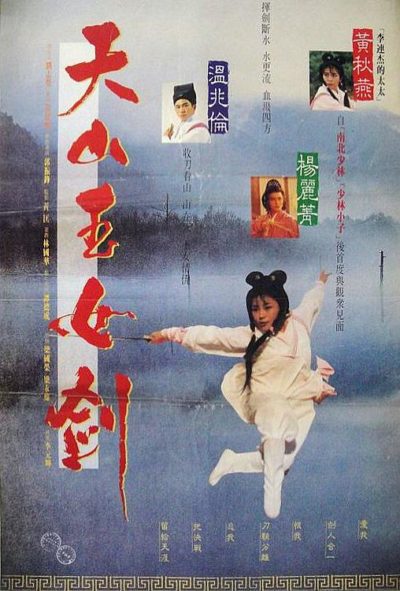 Yeah, if the above line of subtitled dialogue makes sense, this film then ups the ante, with white subs on a frequently white background, and which frequently appear to be making a bid to escape from the bottom of the picture. It’s safe to say that a decent presentation of this, perhaps with a print which doesn’t look like it was left in someone’s pocket when their suit went to the cleaners, might merit a half-star more. A few more fight sequences would help too: the ones there are, don’t lack in quality. There’s just a bit too much farcical comedy for my taste.
Yeah, if the above line of subtitled dialogue makes sense, this film then ups the ante, with white subs on a frequently white background, and which frequently appear to be making a bid to escape from the bottom of the picture. It’s safe to say that a decent presentation of this, perhaps with a print which doesn’t look like it was left in someone’s pocket when their suit went to the cleaners, might merit a half-star more. A few more fight sequences would help too: the ones there are, don’t lack in quality. There’s just a bit too much farcical comedy for my taste.
It begins with the evil Aoba swiping a book of martial arts skills, killing its owner and kidnapping his wife (Hui). Their daughter, Lunar (Wong, who was Jet Li’s first wife) grows up, clearly believing revenge is a dish best served cold. Eventually, along with her comic relief acolyte (Wan), Lunar enters Aoba’s castle, disguised as a man, seeking to recover the book, free her mother and take revenge for her father. However, complications ensue, largely down to Aoba’s sex-mad wife. To stop her from being unfaithful, Aoba has staffed the castle entirely with gay men. The acolyte is the only exception, and has repeatedly to fend off her demands. The always welcome Cynthia Khan also shows up, as another swordswoman who switches sides to join Lunar, after finding out the truth about Aoba.
At least, the above is my best guess. For the reasons explained in the first paragraph, I’m not prepared to stake my life on much beyond the film’s title. As usual, I do have to question the apparently literal gender-blindness of people here. The only person less convincing as a person of the opposite sex, than Wong trying to be a man, is likely Wan attempting to pass as a woman. That and him trying to keep his trousers on, occupy a significant chunk of the middle portion. While it’s not too painful, as comedy goes – at least, when compared to some entries I’ve endured – it’s not why we are here, and the decent opening fight only whets this unsatisfied appetite.
Although there are sporadic outbursts of activity, it’s not until Lunar discovers the key to tap into the power of Virgin Sword (let’s just say, it’s counter-intuitive to the name), that she’s able to take on Aoba and his many, many minions. This provides the acceptably rousing content for which we have been waiting, as she storms the castle and releases Mom. Not least, for a spectacular sequence involving some kind of outdoor scaffolding construct, and a significant quantity of pyrotechnics. Everyone ends up having to team up in order to destroy Aoba, and there’s an odd coda where the acolyte ends up with both Lunar and Khan’s character, while pretending his mother is one of the gay guys from the castle. I can only presume the phrase “lost in translation” applies here.
Dir: Chien-Hsun Huang
Star: Wong Chau-Yin, Deric Wan, Cynthia Khan, Kara Hui
a.k.a. Wu Tang Witch





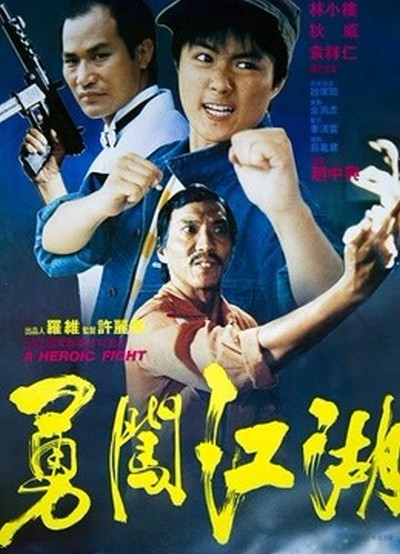 Well, this is certainly… a film. Indeed, of all the movies I’ve seen, it is unquestionably… one of them. Is it good? Bad? I’m still not sure. There are so many shifts in tone here, you’ll get whiplash. It’s clearly intended to be a parody of eighties Hong Kong cinema (even though it was made in Taiwan), yet is equally guilty of committing many of the same sins. I can’t deny the imagination here. A gangster, the unfortunately named Mr. Duh (Chao) is embroiled in a struggle for control of his empire with a lieutenant (Wei) who wants to start dealing drugs. To this end, the boss’s grand-daughter is kidnapped, only to be rescued by conveniently passing martial arts actor Hsiao-Long (Lin). He – and I’ll get back to that – is part of a film studio under his father (Yuen), who specializes in action and special effects. They end up hired by Duh, putting their skills to use to protect the grand-daughter and, at one point, fake the boss’s death.
Well, this is certainly… a film. Indeed, of all the movies I’ve seen, it is unquestionably… one of them. Is it good? Bad? I’m still not sure. There are so many shifts in tone here, you’ll get whiplash. It’s clearly intended to be a parody of eighties Hong Kong cinema (even though it was made in Taiwan), yet is equally guilty of committing many of the same sins. I can’t deny the imagination here. A gangster, the unfortunately named Mr. Duh (Chao) is embroiled in a struggle for control of his empire with a lieutenant (Wei) who wants to start dealing drugs. To this end, the boss’s grand-daughter is kidnapped, only to be rescued by conveniently passing martial arts actor Hsiao-Long (Lin). He – and I’ll get back to that – is part of a film studio under his father (Yuen), who specializes in action and special effects. They end up hired by Duh, putting their skills to use to protect the grand-daughter and, at one point, fake the boss’s death.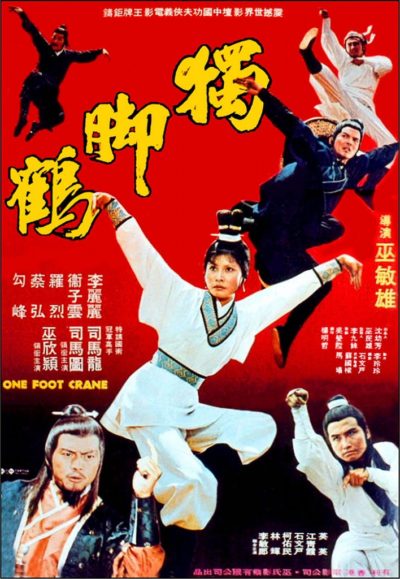 We begin with the murder of a family, with the sole (apparent) survivor being a small child, Fung Lin-yi (Li), who is able to escape. Rescued by – and stop me if you’ve heard this one before – a kung-fu master, she is rigourously trained in the titular style of martial arts. It’s fairly nifty, not least for the dagger hidden in the tip of her shoe which she uses to administer the coup de grace, Rosa Klebb style. Fifteen years later, she’s ready to seek revenge on the quartet of outlaws responsible for killing her family, who unlike our heroine, appear not to have aged a day over the decade and a half since they participated in the slaughter. Matters are complicated by a few factors. Her first victim is the father of one of the outlaws, who then starts tracking down the mysterious “One Foot Crane” responsible. There’s also a police official investigating the situation (Sze), and it turns out Lin-yi may not be the only survivor after all (Wei).
We begin with the murder of a family, with the sole (apparent) survivor being a small child, Fung Lin-yi (Li), who is able to escape. Rescued by – and stop me if you’ve heard this one before – a kung-fu master, she is rigourously trained in the titular style of martial arts. It’s fairly nifty, not least for the dagger hidden in the tip of her shoe which she uses to administer the coup de grace, Rosa Klebb style. Fifteen years later, she’s ready to seek revenge on the quartet of outlaws responsible for killing her family, who unlike our heroine, appear not to have aged a day over the decade and a half since they participated in the slaughter. Matters are complicated by a few factors. Her first victim is the father of one of the outlaws, who then starts tracking down the mysterious “One Foot Crane” responsible. There’s also a police official investigating the situation (Sze), and it turns out Lin-yi may not be the only survivor after all (Wei).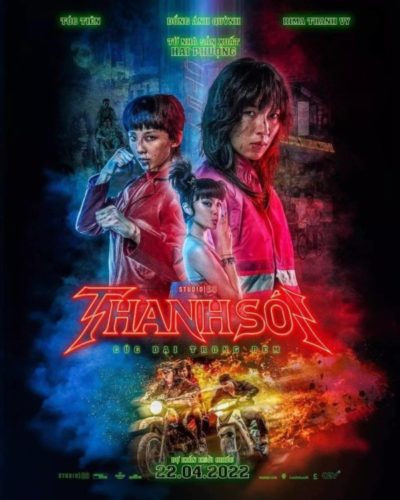 This is a prequel of sorts to
This is a prequel of sorts to 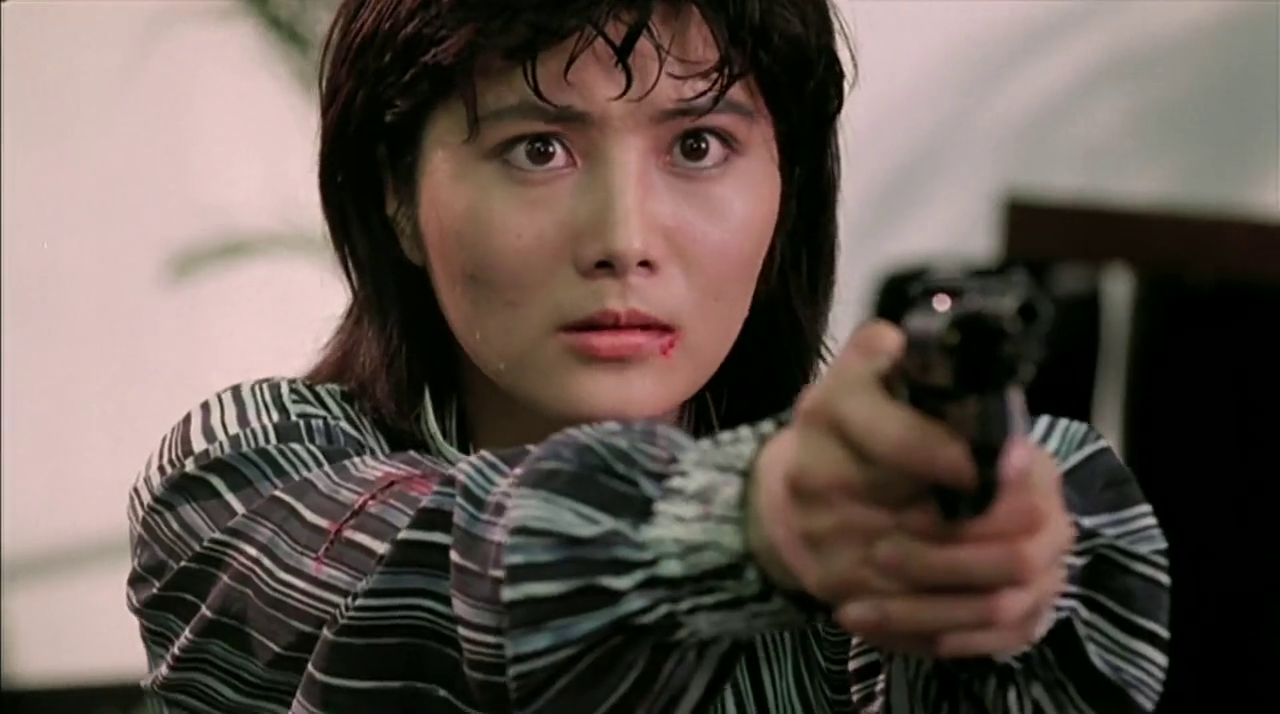 ★★★★½
★★★★½ Back in the early nineties, I saw a double-bill of this and Jackie Chan’s Police Story at the late, lamented Scala Cinema in London, and it blew my mind. I had literally never seen anything like them before. The only martial arts movies I’d watched previously were crappy American ones, which made little or no impression. That afternoon changed my life, and awakened a love of the genre that persists to this day. But would In the Line of Duty 4 stand the test of time? There are certainly movies I loved from the same era, which are now a bit cringe, to put it mildly. So it was with some trepidation that I hit play…
Back in the early nineties, I saw a double-bill of this and Jackie Chan’s Police Story at the late, lamented Scala Cinema in London, and it blew my mind. I had literally never seen anything like them before. The only martial arts movies I’d watched previously were crappy American ones, which made little or no impression. That afternoon changed my life, and awakened a love of the genre that persists to this day. But would In the Line of Duty 4 stand the test of time? There are certainly movies I loved from the same era, which are now a bit cringe, to put it mildly. So it was with some trepidation that I hit play…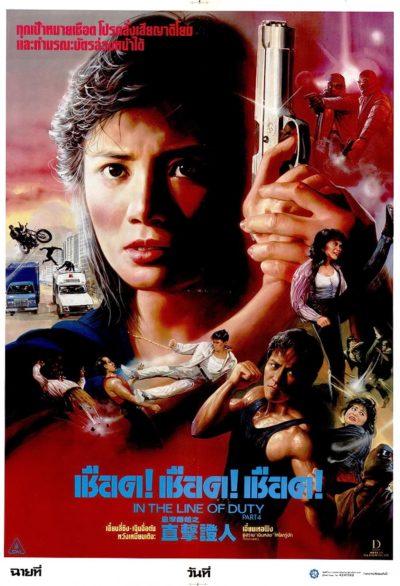 For when all is said and done, the fights are flat-out awesome. It’s not just Khan and Yen, though they obviously get most to do. Everyone here is well up to the task, both showing off their own stuff and letting the stars look good by selling for them. On the female front, I want to give special praise to Farlie Ruth Kordica, who fights Cynthia around a lift-shaft in another sequence which feels disturbingly life-threatening. She only appeared in a couple of other films, which feels like a real shame, based on her performance here. It’s a wonderfully inventive scene (bottom), taking full advantage of the potential in the environment.
For when all is said and done, the fights are flat-out awesome. It’s not just Khan and Yen, though they obviously get most to do. Everyone here is well up to the task, both showing off their own stuff and letting the stars look good by selling for them. On the female front, I want to give special praise to Farlie Ruth Kordica, who fights Cynthia around a lift-shaft in another sequence which feels disturbingly life-threatening. She only appeared in a couple of other films, which feels like a real shame, based on her performance here. It’s a wonderfully inventive scene (bottom), taking full advantage of the potential in the environment. 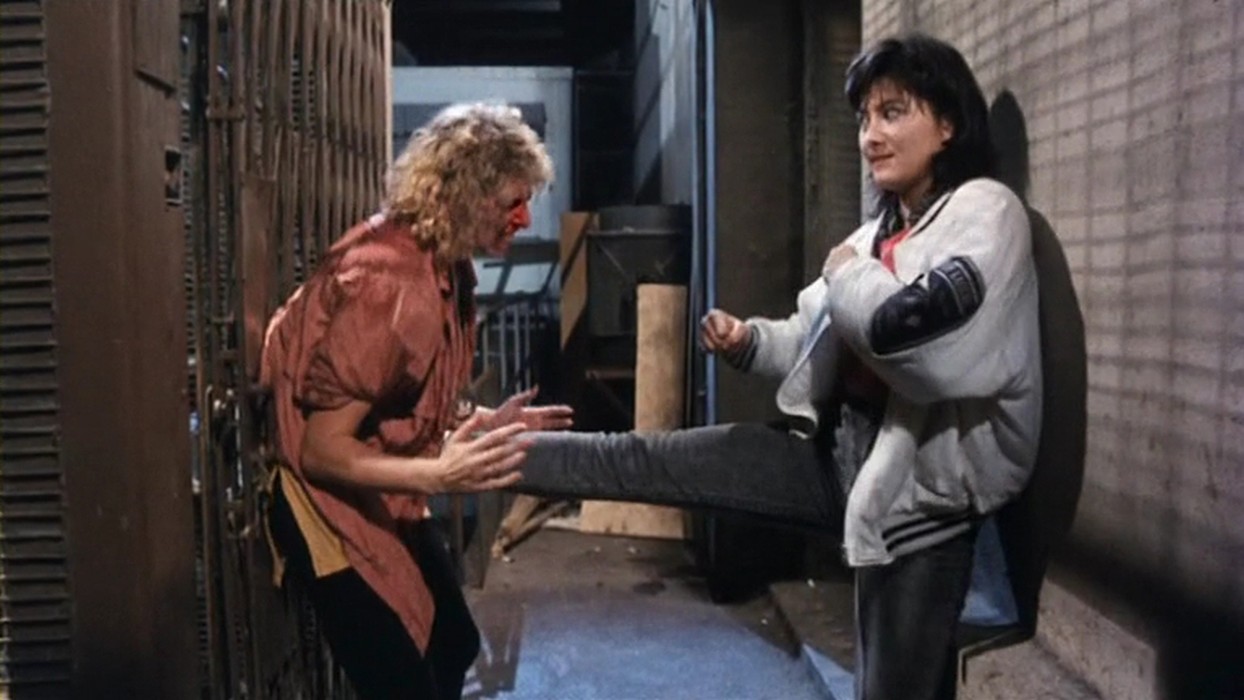
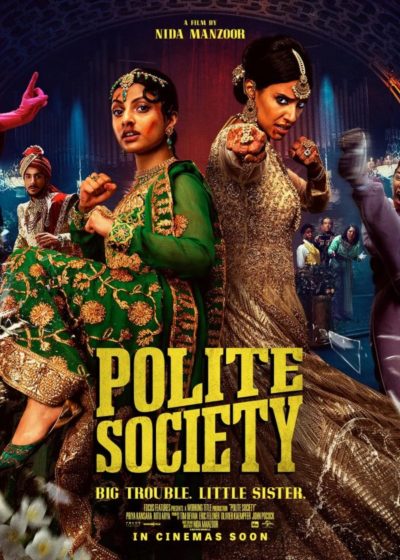 Sitting somewhere between
Sitting somewhere between 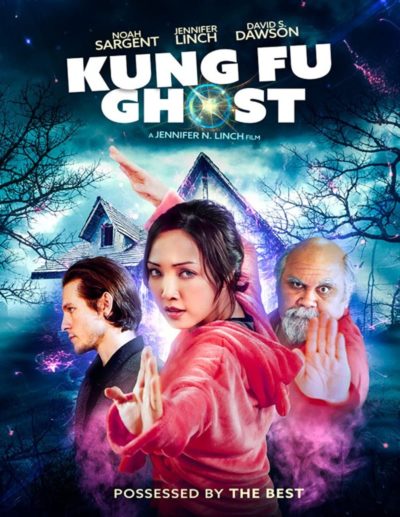 This is another example of someone simply trying to do too much on their movie. For Linch not only starred in, produced and directed this, she also edited it, did the sound design and was the colourist. It’s not hard to predict her talents are not equally divided. It’s a shame, since I really wanted to enjoy this: much like its heroine, there’s a plucky, can-do attitude present, which can only be admired. Unfortunately, anyone above the age of eight is going to be quite hard-pushed to overlook the flaws. While the action is not especially one of those, the volume there is underwhelming, and the romantic, comedic and dramatic elements are hugely variable, to put it politely.
This is another example of someone simply trying to do too much on their movie. For Linch not only starred in, produced and directed this, she also edited it, did the sound design and was the colourist. It’s not hard to predict her talents are not equally divided. It’s a shame, since I really wanted to enjoy this: much like its heroine, there’s a plucky, can-do attitude present, which can only be admired. Unfortunately, anyone above the age of eight is going to be quite hard-pushed to overlook the flaws. While the action is not especially one of those, the volume there is underwhelming, and the romantic, comedic and dramatic elements are hugely variable, to put it politely.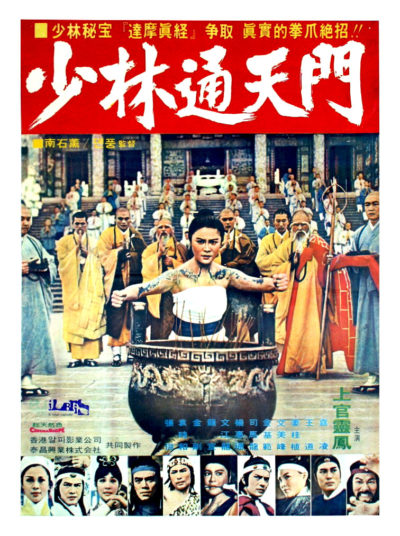 This Taiwanese kung-fu potboiler just about manages to sustain interest for an hour, before losing the plot (literally, and such as it was to begin with) down the stretch. It begins with ten martial arts masters stealing an omnibus edition of fighting manuals from the local Shaolin temple. Trying to get entry, and failing, because they won’t admit women, is Shi Fu Chun (Kwan). With the help of former head priest Lin Chiu (Chan), who still lives nearby, she is taught a slew of skills, and ends up assigned the task of recovering the purloined books, and restoring the temple’s honour. Oh, except the “positive kung-fu” learned is causing Shi Fu to transition into a man. So she/he (inexplicably, the 1977 film does not provide us with preferred pronouns…) needs to find and learn some “negative kung-fu” stat, to counter the process.
This Taiwanese kung-fu potboiler just about manages to sustain interest for an hour, before losing the plot (literally, and such as it was to begin with) down the stretch. It begins with ten martial arts masters stealing an omnibus edition of fighting manuals from the local Shaolin temple. Trying to get entry, and failing, because they won’t admit women, is Shi Fu Chun (Kwan). With the help of former head priest Lin Chiu (Chan), who still lives nearby, she is taught a slew of skills, and ends up assigned the task of recovering the purloined books, and restoring the temple’s honour. Oh, except the “positive kung-fu” learned is causing Shi Fu to transition into a man. So she/he (inexplicably, the 1977 film does not provide us with preferred pronouns…) needs to find and learn some “negative kung-fu” stat, to counter the process. 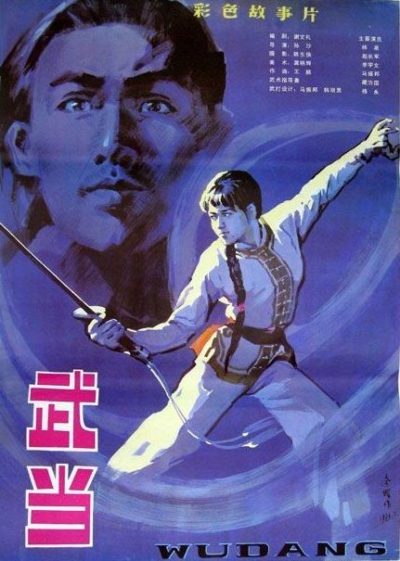 Chinese kung-fu movies took off in the early eighties, after the success of Shaolin Temple, starring an unknown teenager called Jet Li. Over the years that followed, a slew of imitators followed, with varying success. Where these largely differed from their Hong Kong counterparts, were in a more grounded approach to combat: wire-work and trampolines were avoided, in favour of players who (like Li) were martial artists first, and actors second. I believe the same is true of the heroine here, though information about Lin is hard to come by. According to the IMDb, this was her acting debut, though it’s tricky to grade her work there, thanks to the rather clunky dubbing on the print viewed for this review.
Chinese kung-fu movies took off in the early eighties, after the success of Shaolin Temple, starring an unknown teenager called Jet Li. Over the years that followed, a slew of imitators followed, with varying success. Where these largely differed from their Hong Kong counterparts, were in a more grounded approach to combat: wire-work and trampolines were avoided, in favour of players who (like Li) were martial artists first, and actors second. I believe the same is true of the heroine here, though information about Lin is hard to come by. According to the IMDb, this was her acting debut, though it’s tricky to grade her work there, thanks to the rather clunky dubbing on the print viewed for this review.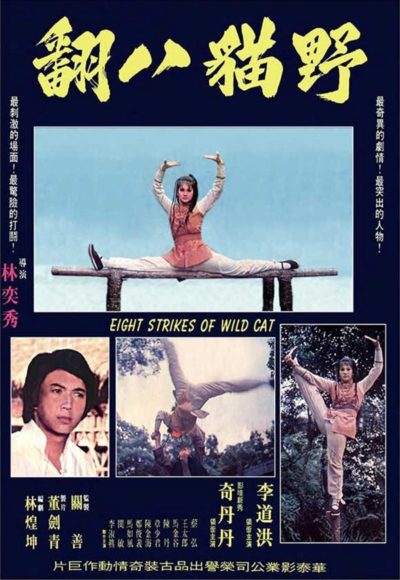 I guess this is, at its heart, about the quest for a treasure map that has been torn into two pieces. Though you could be forgiven for not really noticing, as most of the cast seem to forget about it for the bulk of the running time. The heroine is Shao Wa (Chi), whose father is killed by the Three Rats in their quest for the map. She ends up being punted off a cliff and presumed dead by them. Naturally – it’d be a short movie otherwise – she’s not as dead as they think. She’s rescued by the inevitable kung-fu master and his annoying sidekick, Lee Ta Fa (Hung), who nurse her back to health, and give her the skills necessary to beat the Three Rats.
I guess this is, at its heart, about the quest for a treasure map that has been torn into two pieces. Though you could be forgiven for not really noticing, as most of the cast seem to forget about it for the bulk of the running time. The heroine is Shao Wa (Chi), whose father is killed by the Three Rats in their quest for the map. She ends up being punted off a cliff and presumed dead by them. Naturally – it’d be a short movie otherwise – she’s not as dead as they think. She’s rescued by the inevitable kung-fu master and his annoying sidekick, Lee Ta Fa (Hung), who nurse her back to health, and give her the skills necessary to beat the Three Rats.